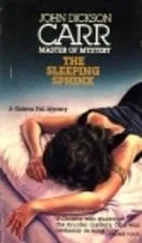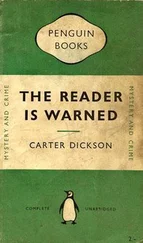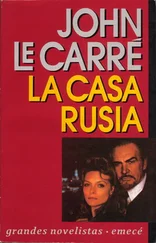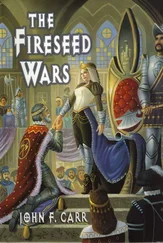'We got drunk on Saturday night and on the Sunday we drove out to Peredelkino in Jumbo's car.' Once again he seemed to have to remind himself that he had an audience. 'Peredelkino is the Soviet writers' village,' he said as if none of us had heard of it. 'They get dachas there for as long as they behave themselves. Writers' Union runs it on a members-only basis – who gets a dacha, who writes best in prison, who doesn't write at all.'
'Who's Jumbo?' said Ned – a rare interjection.
'Jumbo Oliphant. Peter Oliphant.Chairman of Lupus Books. Closet Scottish Fascist. Black belt Freemason. Thinks he's got a special wavelength to the Sovs. Gold card.' Remembering Bob, he tilted his head at him. 'Not American Express, I'm afraid. A Moscow book fair gold card, dished out by the Russian organisers, saying what a big boy he is. Free car, free translator, free hotel, free caviar.jumbo was born with a gold card in his mouth.'
Bob grinned too broadly in order to show the joke was taken in good part. Yet he was a large-hearted man and Barley had spotted this. Barley, it occurred to me, was one of those people from whom good natures cannot hide, just as he 'could not disguise his own accessibility.
'So off we all went,' Barley resumed,returning to his reverie. 'Oliphant from Lupus, Emery from the Bodley Head.And some girl from Penguin, can't remember her name. Yes, I can. Magda.How the hell could I forget a Magda? And Blair from A & B.'
Riding like nabobs in jumbo's stupid limo, said Barley, tossing out short sentences like old clothes from his memory box. Ordinary car not good enough for our Jumbo, had to be a damn great Chaika with curtains in the bedroom, no brakes and a gorilla with bad breath for a driver. The plan was to take a look at Pasternak's dacha which rumour had it was about to be declared a museum,though another rumour insisted that the bastards were about to pull it down. Maybe his grave as well. Jumbo Oliphant didn't know who Pasternak was at first but Magda murmured ' Zhivago ' and Jumbo had seen the film, said Barley. There was no earthly hurry, all they wanted was a bit of a walk and a peck of country air. But Jumbo's driver used the special lane reserved for official roadhogs in Chaikas, so they did the journey in about ten seconds flat instead of an hour, parked in a puddle and schlepped upto the cemetery still trembling with gratitude from the drive.
'Cemetery on a hillside among a lot of trees. Driver stays in the car. Raining. Not much, but he's worried about his awful suit.' He paused in contemplation of the driver. 'Mad ape,' he muttered.
But I had the feeling Barley was railing at himself and not the driver. I seemed to hear a whole self-accusing chorus in Barley, and I wondered whether the others were hearing it as well. He had people inside himself who really drove him mad.
Point was, Barley explained, that as luck would have it they had hit a day when the liberated masses were out in force. In the past, he said, whenever he'd been there, the place had been deserted. just the fenced-in tombs and the creepy trees. But on that September Sunday with the unfamiliar smells of freedom in the air, there were about two hundred fans crammed round the grave and more by the time they left, all shapes and sizes. Grave was knee-deep in flowers, Barley said. Offerings pouring in all the time. People passing bouquets over the heads to get them on the heap.
Then the readings began. Little chap read poetry. Big girl read prose. Then a filthy little aeroplane flew so low overhead you couldn't hear a thing. Then it flew back the other way. Then back the same way.
'Wang, wang!' Barley yelled, his long wrist whipping back and forth through the air. 'Wee-ah, wee-ah,' he whined through his nose in disgust.
But the plane couldn't damp the enthusiasm of the crowd any more than the rain could. Someone began singing, the punters took up the refrain and it became a knees-up. Finally the plane pushed off, presumably because it was low on fuel. But that wasn't what you felt, said Barley. Not a bit. You felt the singing had shot the little swine out of the sky.
The singing grew stronger and deeper and more mystical. Barley knew three words of Russian, and the others none. Didn't stop them joining in. Didn't stop the girl Magda from crying her eyes out. Or Jumbo Oliphant from swearing to God, through lumps in his throat, as they walked away down the hill that he was going to publish every word Pasternak had written, not just the film but the other stuff, so help me, and subsidise it out of his very own personal pocket as soon as he got back to his damask castle in the docklands.
'Jumbo has these hot flushes of enthusiasm,' Barley explained with a disarming grin, returning to his audience, but principally to Ned. 'Sometimes they don't die down for minutes on end.' Then he paused and frowned again and pulled off his strange round spectacles that seemed to be more an infliction than a help, and peered at everybody in turn as if to remind himself of his situation.
They were still walking down the hill, he said, and still having a good cry when this same little Russian chap came darting up to them holding his cigarette to one side of his face like a candle, asking in English whether they were Americans.
Once again Clive was ahead of all of us. His head slowly lifted. There was a knife-edge to his managerial drawl. 'Same? What same little Russian chap? We haven't had one.'
Unpleasantly reminded of Clive's presence, Barley screwed up his face in a renewal of distaste. 'He was the reader, for goodness' sake,' he said. 'Chap who'd read Pasternak's poetry at the graveside. He asked if we were American. I said no, thank God, British.'
And I noticed, as I supposed we all did, that it was Barley himself, not Oliphant or Emery or the girl Magda, who had become the appointed spokesman of their group.
Barley had fallen into direct dialogue. He had the mynah bird's ear. He had a Russian accent for the little chap and a Scottish woof-woof voice for Oliphant. The mimicry slipped out of him as if he were unaware of it.
'You are writers?' the little chap asked, in Barley's voice for him.
'No, alas. just publishers,' said Barley, in his own.
'English publishers?'
'Here for the Moscow book fair. I run a corner shop called Abercrombie & Blair and this is the Chairman Himself of Lupus Books. Very rich bloke.Be a knight one day. Gold card and bar. Right, Jumbo?'
Oliphant protested that Barley was saying far too much. But the little chap wanted more.
'May I ask then what were you doing at Pasternak's grave?' said the little chap.
'Chance visit,' Oliphant said, barging in again. 'Total chance. We saw a crowd, we came up to see what was going on. Pure chance. Let's go.'
But Barley had no intention of going. He was annoyed by Oliphant's manners, he said, and he wasn't going to stand by while a fat Scottish millionaire gave the brush-off to an undernourished Russian stranger.
'We're doing what everyone else here's doing,' Barley replied. 'We're paying our respects to a great writer. We liked your reading too. Very moving.- Great stuff. Ace.'
'You respect Boris Pasternak?' the little chap asked.
Oliphant again, the great civil rights activist, rendered by a gruff voice and a twisted jaw. 'We have no position on the matter of Boris Pasternak or any other Soviet writer,' he said. 'We're here as guests. Solely as guests. We have no opinions on internal Soviet affairs.'
'We think he's marvellous,' Barley said. 'World class. A star.'
'But why?' asked the little chap, provoking the conflict.
Barley needed no urging. Never mind he wasn't totally convinced that Pasternak was the genius he was cracked up to be, he said. Never mind that, as a matter of fact, he thought Pasternak quite seriously overpraised.That was publisher's opinion, whereas this was war.
Читать дальше










